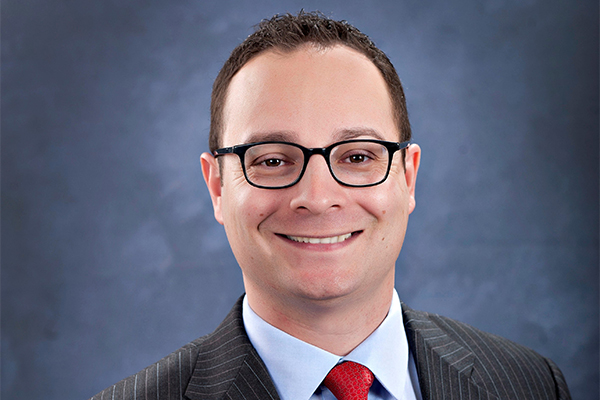LEGAL BRIEFS
I. Introduction
With revenues pegged at anywhere between two hundred million and two billion dollars per year, numerous mainstream promotion companies currently accept advertising from online casinos that are most often based in jurisdictions outside the United States.LEGAL BRIEFS
I. Introduction
With revenues pegged at anywhere between two hundred million and two billion dollars per year, numerous mainstream promotion companies currently accept advertising from online casinos that are most often based in jurisdictions outside the United States. Some foreign online casinos also generate their own marketing strategies in-house. Notably, many webmasters have implemented or are considering some form of online casino affiliate program. While the legality of online gaming itself is still an open question as a result of conflicting court decisions and stalled legislation, the legal issues relating to advertising online gambling services by American webmasters are even more obscure. One of the reasons is that the power of the U.S. government to regulate advertising of a particular product or service is not coextensive with its ability to regulate or ban the same product or service. This article will explore the historical treatment of gambling advertising by the courts, evaluate the current regulatory climate and suggest some possible theories for legal challenges in the future.
II. Historical Treatment of Gambling Advertisements
A. Traditional Federal Regulations of Gambling Promotion
The promotion of commercial lotteries and other forms of traditional gambling has long been the subject of state and federal regulation in the United States. As early as 1827, Congress passed a law that provided: “No Postmaster, or Assistant Postmaster, shall act as agent for lottery offices.”1 By 1868, Congress made it unlawful to mail any letters or circulars concerning lotteries or other similar enterprises offering prizes of any kind or any pretext whatsoever.2 Congress extended the mailing ban from letters to cover newspapers through the Anti-Lottery Act of 1890,3 which was upheld in the face of an 1892 First Amendment challenge.4 By 1895, Congress eliminated interstate lotteries altogether, and prohibited the transportation of lottery tickets in interstate commerce.5 The Supreme Court upheld this law despite a Commerce Clause challenge.6
The current federal law prohibiting the broadcast advertising of gambling activities (presumably including Internet gambling) is the Communications Act of 1934,7 currently codified in 18 U.S.C. §§1304 and 1307 (hereafter referred to as “§1304”or “§1307”). While the law only appears to prohibit advertisement of information concerning lotteries, it has been interpreted by the regulatory and enforcement agencies to prohibit the advertising of private casino gambling as well.8
B. Setting the Stage with a State Law Challenge
The states have also implemented various regulations on the advertising of legal gambling, examples of which are discussed later. One such regulation, passed by the Territory of Puerto Rico, made its way to the United States Supreme Court, and provides an appropriate starting point for the legal analysis of gambling promotion.9 In that case, a partnership franchised to operate a casino in Puerto Rico challenged the constitutionality of Puerto Rico’s Games of Chance Act of 1948. This law legalized certain forms of casino gambling in licensed locations in order to promote the development of tourism, but also provided that “no gambling room shall be permitted to advertise or otherwise offer their facilities to the public of Puerto Rico.”10 The casino operators were fined by the public entity authorized to administer the law, for violating the advertising restrictions. In response, they challenged the Act as unconstitutional in violation of the First Amendment and the Equal Protection and Due Process clauses of the United States Constitution. The law contained broad prohibitions even on the use of the word “casino” on such promotional items as matchbooks, lighters, envelopes, napkins, menus, plates, banners, fliers, etc.11 An intermediate appellate court in Puerto Rico narrowed the scope of the law to prohibit only those advertisements directed to bona fide residents of Puerto Rico in the local publicity media.12 Under that narrow construction, advertising was allowed if it was directed to tourists, provided that the advertisements did not invite residents of Puerto Rico to visit the casinos, even though the advertisements may incidentally reach the hands of a local resident.13 The United States Supreme Court accepted the case and reviewed the constitutionality of the Act in light of the interpretation placed on it by the appellate court.
A First Amendment challenge to advertising regulations is analyzed by the general principles set forth to in Central Hudson Gas & Electric Corp v. Public Service Commission of New York.14 Under the Central Hudson analysis, the court’s first duty is to determine whether the First Amendment applies at all. In so doing, the proper inquiry is whether the advertisement concerns a lawful activity and is not misleading or fraudulent.15 Once it is determined that the First Amendment applies to a particular kind of commercial speech at issue, the speech may be restricted only if: (1) the government’s interest in doing so is substantial; (2) the restrictions directly advance the government’s asserted interest; and (3) the restrictions are no more extensive than necessary to serve that interest.16 Notably, the Central Hudson test would be the analysis used by a reviewing court in determining the constitutionality of any American Internet gambling restriction.
Applying the Central Hudson test to the advertising restriction at issue in Posadas, the United States Supreme Court upheld its constitutionality. The Court initially found that the First Amendment applies since the advertising of casino gambling concerned a lawful activity that is not misleading or fraudulent. The Court went on to review whether the government has a substantial interest in regulating the advertising of casino gambling. All of the typical concerns relating to traditional gambling were advanced to justify the government’s substantial interest, such as the serious harmful effects on the health, safety and welfare of Puerto Rican citizens, the disruption of moral and cultural patterns, the increase in local crime, the fostering of prostitution, the development of corruption and the infiltration of organized crime.17 Such negative impacts are consistently cited as justification for anti-gambling statutes. The continued viability of such justifications is questionable in the context of Internet gambling, given the critical differences between virtual gambling, and gambling in a traditional casino, as discussed later in this article.
Interestingly, the Court in Posadas cited another Supreme Court case, Renton v. Playtime Theaters, Inc.,18 in connection with the alleged governmental interest in regulating gambling advertising. The Renton case involved regulation of adult entertainment, which has faced a myriad of local and state restrictions on its display and promotion, despite the fact that adult entertainment has been recognized as free expression protected by the First Amendment, on repeated occasions in the courts. Many of the same issues and arguments litigated in adult entertainment cases relating to the government’s substantial interests in regulating adult entertainment facilities would be applicable to cases involving the validity of Internet gambling advertising regulations, given the similar legal analysis employed by the courts.
Upon review of the “parade of horribles” asserted as justifying Puerto Rico’s governmental interests, the United States Supreme Court in Posadas had no difficulty concluding that the government’s interest was “substantial.” The last two steps of the Central Hudson analysis essentially involve a consideration of the fit between the legislature’s ends and the means chosen to accomplish those ends.19 In reviewing these final two steps, the Court concluded that the restrictions on advertisement to Puerto Rican residents directly advance the government’s asserted interests since, essentially, advertising works! Therefore, local residents would be encouraged to gamble more based on more advertising. Finally, the Court concluded that the restrictions are no more extensive than necessary to serve the government’s interest since Puerto Rico could have simply banned casino gambling altogether.20
It is this analysis that has been called into serious doubt by later United States Supreme Court cases which have concluded that the government’s power to ban the underlying activity does not necessarily provide the concurrent power to ban all speech associated with that activity. Thus, while the gambling advertising restriction was upheld in Posadas, other advertising restrictions would meet a different fate in later cases.
C. Challenges to Federal Restrictions
The federal statute prohibiting casino gambling advertising, §1304, has been the subject of numerous constitutional challenges. The United States Supreme Court first considered the constitutionality of this law in the 1993 case of U.S. v. Edge Broadcasting Co.21 In that case, a broadcaster licensed with the FCC in the State of Virginia, challenged the prohibitions of 18 U.S.C. §§1304 and 1307 which prohibit the broadcast of information regarding state-run lotteries to residents of non-lottery states. Virginia was a lottery state, although its broadcast was accessible to residents of neighboring North Carolina, a non-lottery state. The Virginia broadcasting company wished to broadcast Virginia lottery advertisements even though such information was accessible to residents of North Carolina. Edge Broadcasting therefore filed a First Amendment and Equal Protection challenge to the federal legislation. Although the lower courts invalidated the regulation as applied to Edge Broadcasting, the United States Supreme Court reversed and held that the government has the constitutional power to protect the non-lottery states from receiving the information regarding the prohibited activity in the lottery states. Allowing Edge Broadcasting to carry the lottery advertisements to North Carolina residents would be in derogation of the federal interests supporting the state’s anti-lottery laws and would permit Virginia’s lottery laws to dictate what stations a neighboring state may air.22
The analytical framework for gambling advertising challenges changed dramatically after the United States Supreme Court’s decision in 44 Liquormart, Inc. v. Rhode Island23 which cast significant doubt on the reasoning contained in the Posadas case. While no unanimous opinion was produced by the 44 Liquormart decision, a majority of the Court agreed to strike down two Rhode Island statutes which prohibited the advertising of alcoholic beverage retail prices anywhere other than at a point of purchase. The various opinions produced by the 44 Liquormart decision provided additional strength to First Amendment challenges directed at advertising restrictions.
Subsequent to the 44 Liquormart decision, the Ninth Circuit Court of Appeals considered another challenge to §1304, this time brought by Valley Broadcasting Company and Sierra Broadcasting Company, both Nevada corporations which operate television stations in Las Vegas and Reno, Nevada.24 The broadcasters desired to broadcast advertisements for casino gambling, an activity that is legal in the State of Nevada, but which could also be heard by audiences in California and Utah. This time, under the guidance of the 44 Liquormart decision and Ruben v. Coors Brewing Co.,25 a case involving the “strength wars” between brewing companies, the Ninth Circuit struck down §1304 on First Amendment grounds. Although the Court concluded that the government still had a substantial interest in protecting citizens against the negative impacts of gambling like moral corruption, crime and prostitution,26 the Circuit Court found that the restriction could no longer meet the remaining parts of the Central Hudson test.
In analyzing the last two prongs of the test, the Ninth Circuit was particularly concerned with the numerous exceptions contained in §1304, allowing many other forms of gambling such as any gaming by the Indian tribes, fishing tournaments and state-run lotteries. If the government’s interest were truly focused on reducing gambling, it would not have included all of these bizarre exceptions. Since §1304 permitted advertising of commercial lotteries for non- profit organizations, governmental organizations and Indian tribes, it was therefore impossible to materially discourage public participation in commercial gambling.27 The Court further noted that after the 44 Liquormart decision, the continued validity of much of the reasoning in Posadas is no longer as compelling.
The United States Supreme Court addressed the issues raised by Valley Broadcasting in another challenge to §1304 in Greater New Orleans Broadcasting Association, Inc. v. U.S.28 There, a broadcaster association from Louisiana challenged §1304 by suing the FCC for a declaratory judgment, asking the court to rule that the law violated the First Amendment. Although the case worked its way up and down the court system for a while, ultimately the United States Supreme Court held that the law was unconstitutional as applied to the radio and television stations located in Louisiana, where gambling was legal. Again, the Court found that the advertisements were protected by the First Amendment, and that the government’s interest was substantial; the first two prongs of the Central Hudson test.
However, the Court created a new legal paradigm for analyzing gambling advertising restrictions when it held that the power to prohibit or to regulate particular conduct does not necessarily include the power to prohibit or regulate speech about that conduct.29 In other words, the Government’s ability to ban gambling all together does not confer unlimited power to restrict or ban advertising about the subject. The Court noted that the federal policy towards gambling has become increasingly unclear with the addition of various exemptions to the broadcasting ban. The exemptions have grown to include gambling schemes conducted by states and local governments, gambling on pari-mutual animal racing or Jai-Alai games, and casino gambling on Indian reservations. Those exemptions make the advertising prohibitions somewhat unclear and demonstrate an inconsistent approach to the overall concept of gambling regulation in the United States. In addition, the Court noted “some form of gambling is legal in nearly every state.”30
In analyzing the two remaining prongs of the Central Hudson test, the government must demonstrate that the harms it recites are real and its restrictions will, in fact, alleviate the harms to a material degree. The challenged regulation should indicate that its proponent carefully calculated the cost and benefits associated with the burden on speech imposed by its prohibition.31 While the government argued that reducing the advertising of gambling decreased the demand for such gambling, the Court stated that it is also reasonable to assume that much of the advertising would merely channel gamblers to one casino rather than another.32 Moreover, any analysis of this issue must consider the fact that the government simultaneously allows the encouragement of tribal casino gambling, which would have the same deleterious results that it claimed it was trying to vanquish by the advertising ban.
However, the most critical flaw in the government’s justification of §1304 came in the existence of the numerous exemptions such that the government could not hope to exonerate it. The Court noted that under the current law, a broadcaster could not carry an advertisement about privately operated commercial casino gambling, regardless of the location of the station or casino, while on the other hand, advertisements for tribal casino gambling authorized by state compacts are not subject to a broadcast ban, even if the broadcaster is located in a jurisdiction with the strictest of anti-gambling policies. In sum, the Court noted that the government is committed to prohibiting accurate product information only when conveyed over certain forms of media and when promoting certain types of gambling, even certain brands of casino gambling. This apparent random discrimination between types of media, physical locations and types of gambling helped push the Court over the edge to invalidate the advertising ban. There was little chance that the speech restriction could have directly, materially advanced the government’s aim, as written.33
Lawrence G. Walters is a partner with the national firm of Weston, Garrou & DeWitt, with offices in Orlando, Los Angeles and San Diego. The firm practices in the area of Free Speech regulation, Internet law, Gaming law and Advertising issues. Nothing in this article is intended as legal advice. Please consult with your personal attorney on specific legal issues. You can reach Lawrence Walters at Larry@LawrenceWalters.com, www.GameAttorneys.com or AOL Screen Name, “Webattorney”.
1 Act of Mar. 2, 1827 §6, 4 Stat. 238.
2 Act of July 27, 1867, §13, 15 Stat. 196.
3 §1, 26 Stat. 465.
4 Ex Parte Rapier, 143 U.S. 110, 112 S.Ct. 374, 36 L.Ed 93 (1892).
5 Act of Mar 2, 1895, §1, 28 Stat. 963.
6 Champion v. Ames, 188 U.S. 321, 23 S.Ct. 321, 47 L.Ed 492 (1903).
7 48 Stat.1064, 1088.
8 FCC v. American Broadcasting Co., 347 U.S. 284, 290-291; Greater New Orleans Broadcasting Association, Inc. v. U.S., 119 S.Ct. 1923, 1927 (1999).
9 Posadas de Puerto Rico Associates v. Tourism Co. of Puerto Rico, 478 U.S. 328, 106 S.Ct. 2968, 92 L.Ed.2d 266 (1986).
10 106 S.Ct. at 2970.
11 Id. at 2972-73.
12 Id. at 2793.
13 Id.
14 447 U.S. 557, 100 S.Ct. 2343, 65 L.Ed.2d 341 (1980).
15 Posadas at 2976; citing: Central Hudson.
16 Central Hudson, 447 U.S. at 566, 100 S.Ct. at 2351
17 Id. at 2977.
18 475 U.S. 41, 54, 106 S.Ct. 925, 932, 89 L.Ed.2d 29 (1986).
19 Posadas at 2977.
20 Id. at 345.
21 509 U.S. 418, 113 S.Ct. 2696, 125 L.Ed.2d 245 (1993).
22 Id. at 2699.
23 517 U.S. 484, 116 S.Ct. 1495, 134 L.Ed.2d 711 (1996).
24 Valley Broadcasting Co., v. U.S., 107 F.3d 1328 (9th Cir. 1997).
25 514 U.S. 46, 115 S.Ct. 1585, 131 L.Ed.2d 532 (1995).
26 Interestingly, the Court still recognized the connection between organized crime and gambling, although it recognized that the threat of organized crime control has diminished considerably. Should casinos at some point be capable of submitting evidence that organized crime is no longer associated with casino gambling, or a particular form of casino gambling, such as Internet gambling, the continued validity of the government’s “substantial interest” in prohibiting advertising relating to such activity is at risk.”
27 Id. at 1335.
28 527U.S. 173, 119 S.Ct 1923, 144 L.Ed.2d 161 (1999).
29 119 S.Ct. at 1934.
30 119 S.Ct. at 1932, N.5.
31 Id. at 1932, citing: Cincinnati v Discovery Network Inc., 507 U.S. 410, 417, 113 S.Ct 1505, 123 L.Ed.2d 99 (1993).
32 Id. at 1932-33.
33 Id. at 192.












